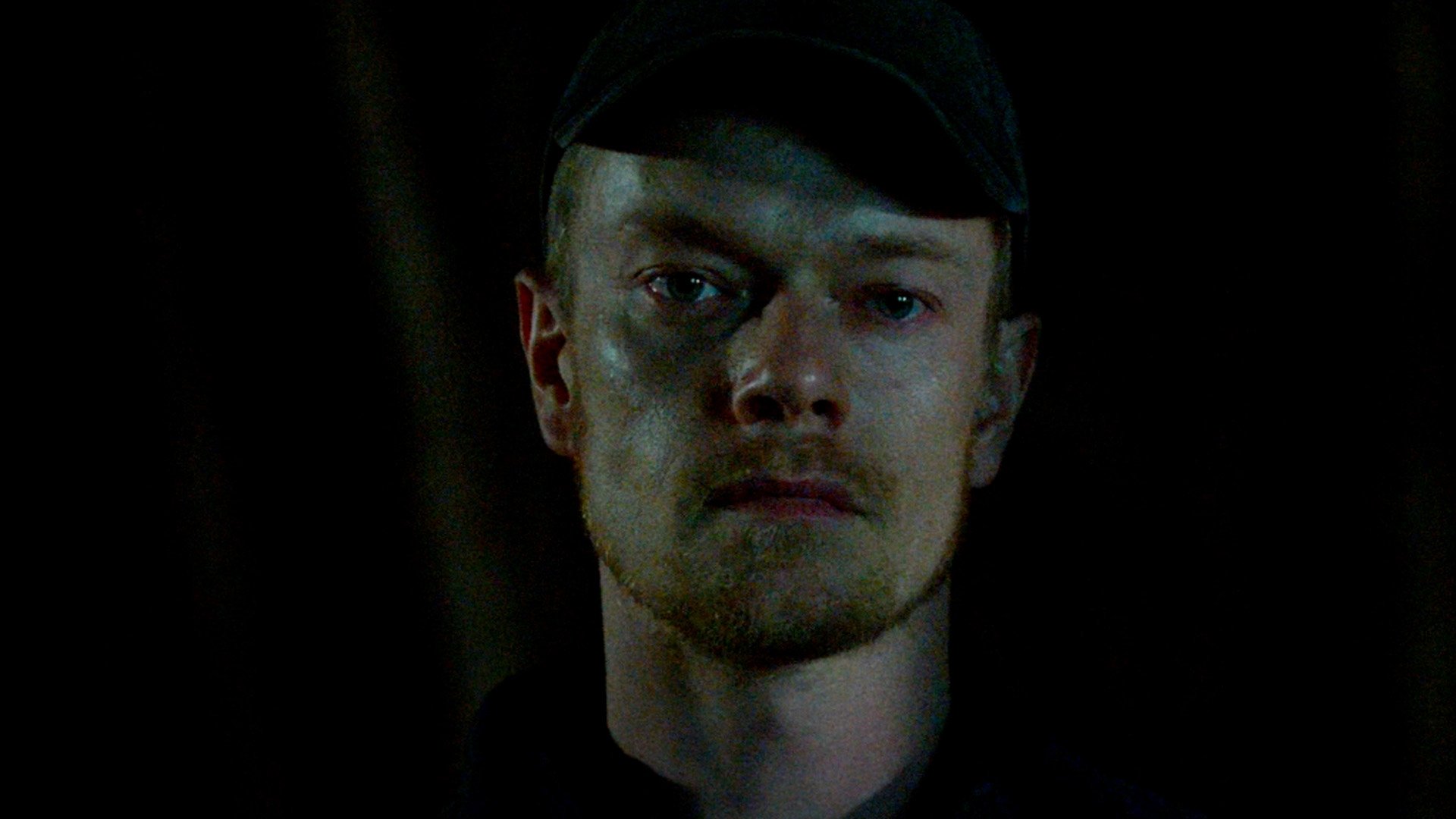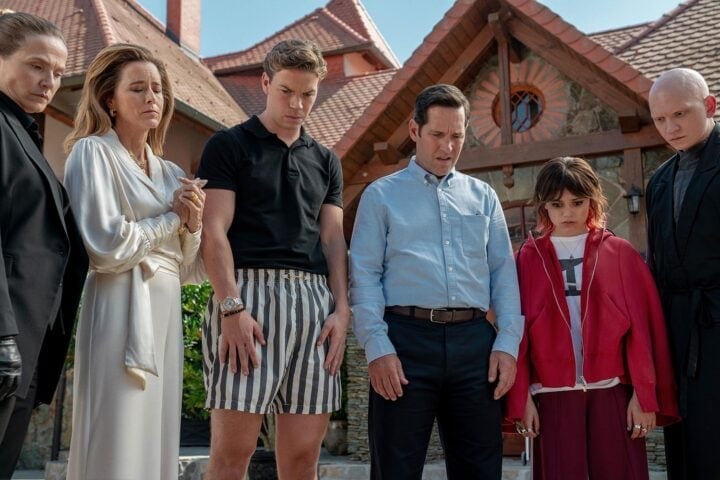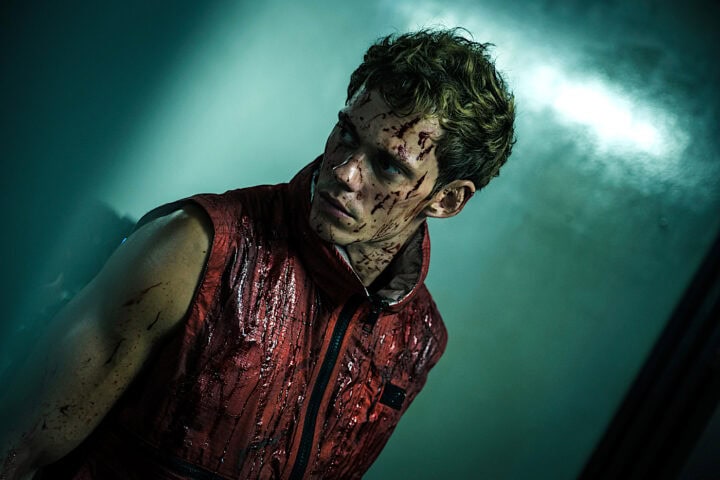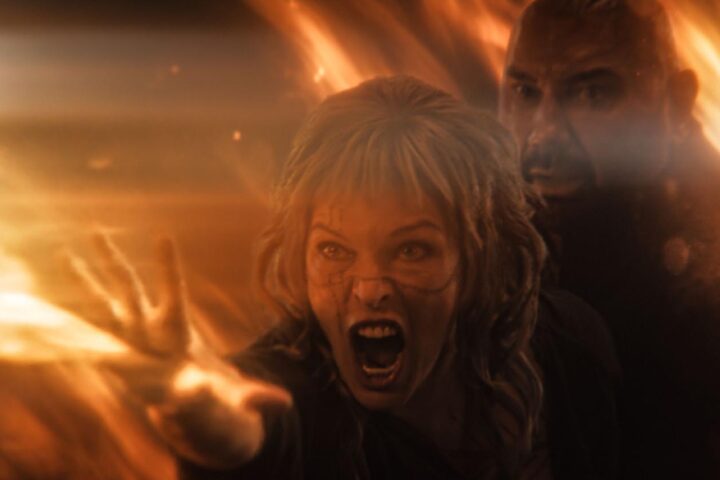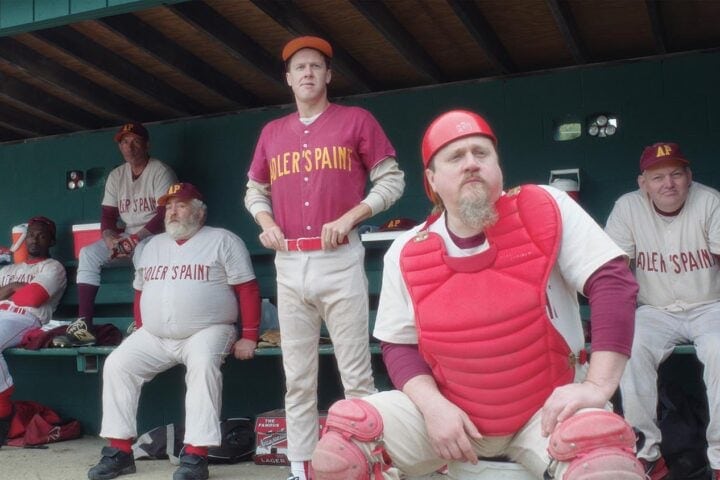At a time when the stories behind shocking headlines are routinely turned into true crime podcasts and star-studded Netflix series, the question of how to tell them ethically is often raised. For its part, Mike Ott’s McVeigh delivers about as un-exploitative and un-sensationalized a depiction of Oklahoma bomber Timothy McVeigh as could possibly be imagined—to the point that, if anything, the film ends up understated to a fault.
McVeigh begins with Timothy (Alfie Allen) driving down a country road as weathered as his car. Nothing happens for a spell, until Timothy is pulled over by a cop. But nothing much happens at this point either, and Timothy is soon free to continue on his way. Something about the relative lack of incident and the dreary, sparse environment puts us on edge. From the start, McVeigh thrums with a sense of alienation and hostility so pronounced that even those unfamiliar with the man that gives the film its title know that this tale is leading somewhere awful.
McVeigh’s ominous atmosphere is omnipresent, clinging to Timothy like a dog to a bone. It’s there when he’s selling bumper stickers emblazoned with anti-government, pro-gun slogans in run-down convention halls. It’s there when he visits the white supremacist killer Richard Snell (Tracy Letts) in prison. And it’s there when he’s sitting at home by himself, soaking up beer and the venom of right-wing news channels while fidgeting with his gun.
While Timothy is clearly unhappy and isolated, the rest of him is shrouded in mystery. In his conversations with Snell, there are allusions to “patriots” and “the tree of liberty,” but the men never get specific about past events or future plans. The same goes for his chats with Frédéric (Anthony Carrigan), the shaven-headed Canadian who befriends Timothy at a convention. There’s something sinister in their interactions, but you can’t pin down what—at least not until Timothy visits Frédéric’s compound and happens to catch sight of a swastika tattoo. Even here, though, the film doesn’t zoom in or have anyone remark on the tattoo. It’s just there.

Silence is the McVeigh’s modus operandi. It’s a film of things left unsaid, to the point where we can’t even tell precisely when Timothy makes the decision to commit an attack that will later be known as the deadliest act of domestic terrorism in American history. Ott’s film simply rumbles on steadily toward its sad end, not unlike Timothy’s car in the opening sequence.
There’s only one moment where music interrupts McVeigh’s pervasive silence. In a rare bout of sociability, Timothy goes on a date with a local waitress, Cindy (Ashley Benson), and the two of them end up going home together. She puts on a record and, just briefly, the film is filled with the warm, welcoming sound of Blaze Foley. The moment provides McVeigh with a fleeting touch of tenderness that makes everything around it feel all the colder and more lifeless by comparison. Naturally, Timothy soon finds a way to ruin their burgeoning romance.
By the end of McVeigh, it’s hard to say that we have a greater understanding of the bombing or the bomber than when we began. Its alienating style keeps us far on the outside of Timothy, and the script gives Allen little chance to do much beyond staring on in that slightly-too-intense way of his. Letts, on the other hand, is absolutely magnetic as Snell, somehow dominating every scene he’s in while speaking calmy from behind a screen of Perspex glass. In his mouth, the film’s minimalist dialogue takes on the menacingly poetic timbre of a Michael Mann character.
McVeigh doesn’t leave us with much to ruminate on when it comes to Timothy, white supremacism, or terrorism at large. And it’s hard not to feel that this is a missed opportunity for a film that’s being released into a world three decades older, where the machinery for radicalizing future McVeighs has become so much larger and more powerful. But the atmosphere of the film, so effectively keyed to Timothy’s sense of total detachment from the world around him, lingers on for a long time after the film has ended.
Since 2001, we've brought you uncompromising, candid takes on the world of film, music, television, video games, theater, and more. Independently owned and operated publications like Slant have been hit hard in recent years, but we’re committed to keeping our content free and accessible—meaning no paywalls or fees.
If you like what we do, please consider subscribing to our Patreon or making a donation.

